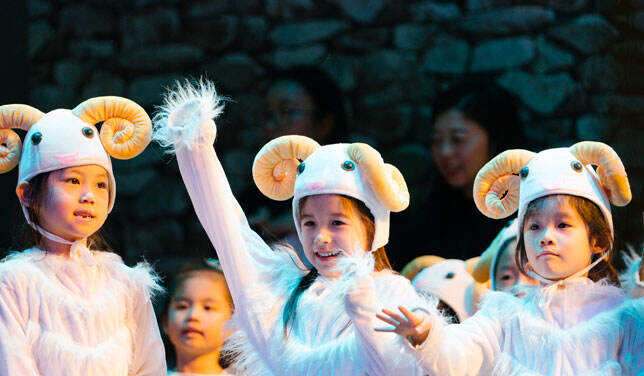Big Talk Part 1 | Building oracy in the Prep School and at home
2019-11-20
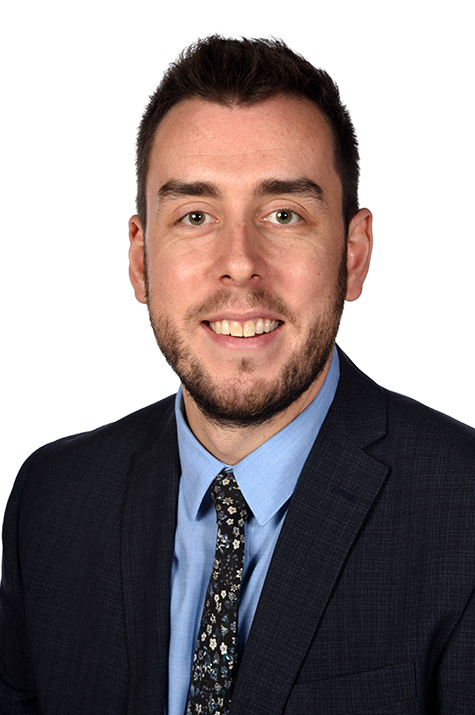
Dean Clayden
Assistant Head of Prep School
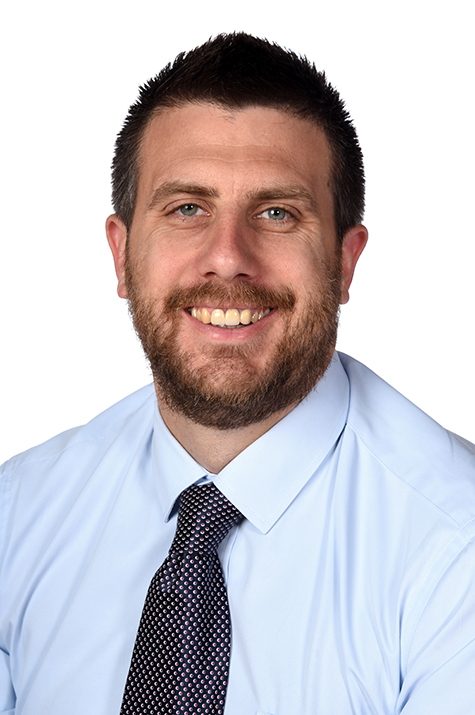
Mark Wright
Assistant Head of Prep School
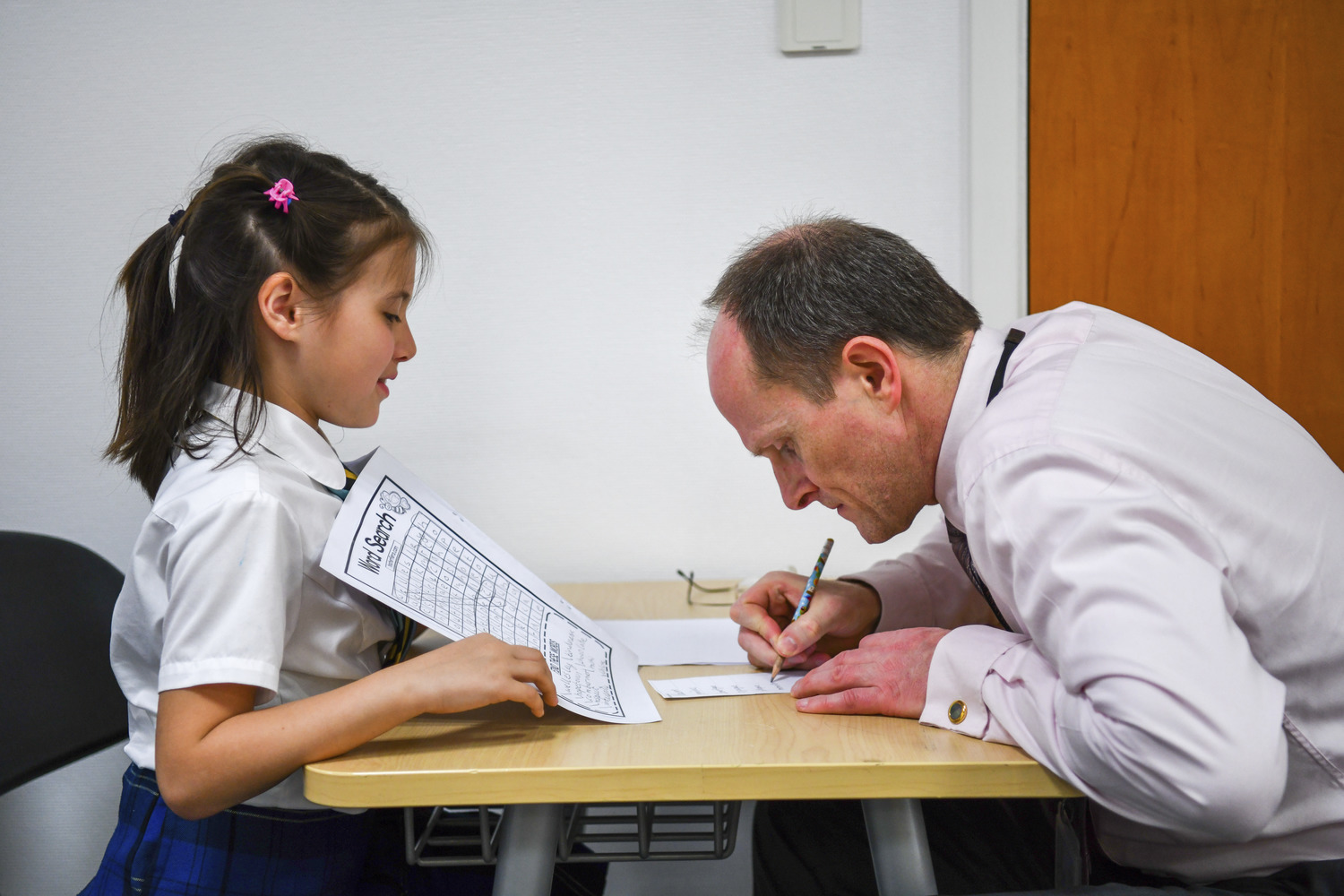 But how do we go about actually forging those connections with our fellow humans? Even though you may not think about this process too often, you already know for a fact that it doesn’t happen automatically! It requires conversations, questions, responses, shared details, agreements, disagreements, arguments and debates. In short – you have to get out there and talk to people. In all of these social interactions, oracy is the key.
But how do we go about actually forging those connections with our fellow humans? Even though you may not think about this process too often, you already know for a fact that it doesn’t happen automatically! It requires conversations, questions, responses, shared details, agreements, disagreements, arguments and debates. In short – you have to get out there and talk to people. In all of these social interactions, oracy is the key.
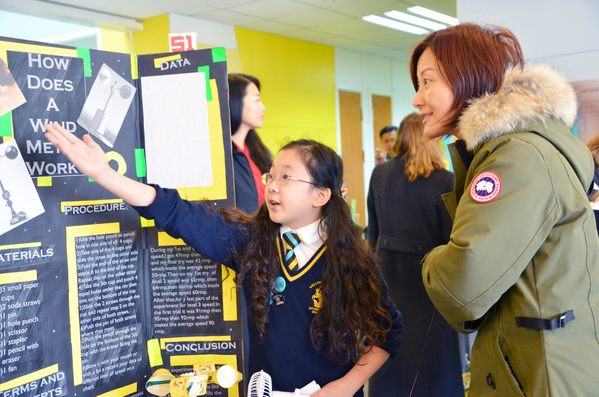 While there is a lot of evolving educational debate on the subject of oracy and what it means, essentially it’s the ability to communicate effectively in any number of oral formats. To put it even more simply: if you have good oracy skills then you’re a good talker and a good listener! With oracy, you can communicate effectively in casual conversations, formal debates, speeches, theatrical performances – any situation that requires the verbal articulation of ideas.
For example, if you listen to any relaxed conversation between a group of adults who are friends, you will see how the discussion moves naturally from person to person. Without assigning any roles or observing any formal rules, the conversation will generally progress on its own, as each member asks questions when appropriate, probes for more information, adds their own points and opinions, and so on. As adults, our decades of experiencing all manner of social interactions means that we fall into these different roles naturally and switch them up almost without thinking. It’s a process that begins with childhood but it’s a skill that we continually improve every day of our lives. No matter how old you are, through oracy you can always become a better talker, a better listener – a better overall communicator.
While there is a lot of evolving educational debate on the subject of oracy and what it means, essentially it’s the ability to communicate effectively in any number of oral formats. To put it even more simply: if you have good oracy skills then you’re a good talker and a good listener! With oracy, you can communicate effectively in casual conversations, formal debates, speeches, theatrical performances – any situation that requires the verbal articulation of ideas.
For example, if you listen to any relaxed conversation between a group of adults who are friends, you will see how the discussion moves naturally from person to person. Without assigning any roles or observing any formal rules, the conversation will generally progress on its own, as each member asks questions when appropriate, probes for more information, adds their own points and opinions, and so on. As adults, our decades of experiencing all manner of social interactions means that we fall into these different roles naturally and switch them up almost without thinking. It’s a process that begins with childhood but it’s a skill that we continually improve every day of our lives. No matter how old you are, through oracy you can always become a better talker, a better listener – a better overall communicator.
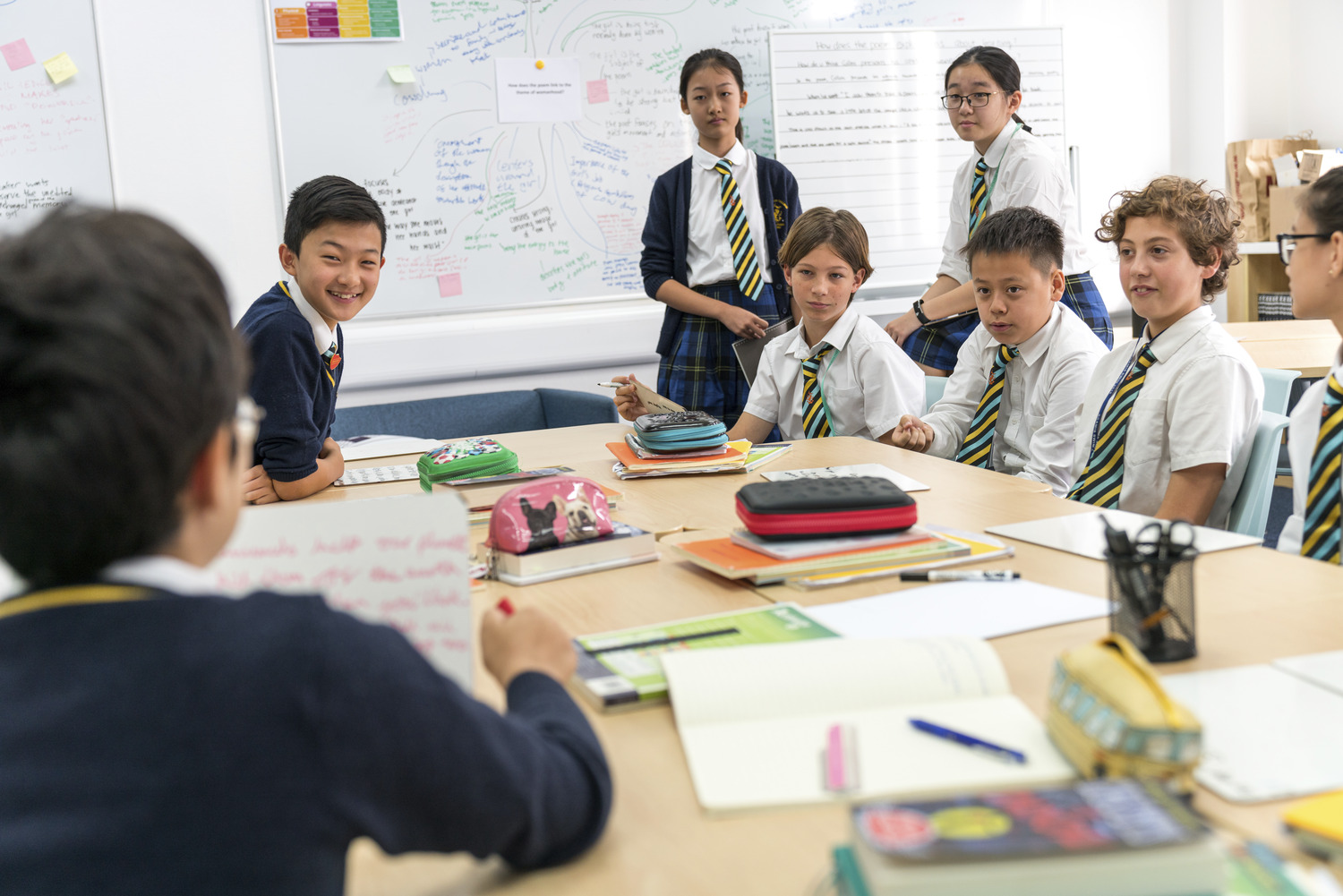 It’s the versatility of this skill that makes it so essential for children to learn as early on as possible. Oracy is entirely relevant to every one of our pupils, regardless of their academic ability or intended career path. Whether they are interviewing for a job, presenting ideas to their colleagues, leading a team, giving an important speech, outlining a theory or doing one of hundreds of professional tasks that require verbal communication, they are going to need oracy.
It’s the versatility of this skill that makes it so essential for children to learn as early on as possible. Oracy is entirely relevant to every one of our pupils, regardless of their academic ability or intended career path. Whether they are interviewing for a job, presenting ideas to their colleagues, leading a team, giving an important speech, outlining a theory or doing one of hundreds of professional tasks that require verbal communication, they are going to need oracy.
 The current generation of schoolchildren are in a unique position when it comes to learning oracy. Being born into the Digital Age, they have access to the most sophisticated communication and learning tools ever created. This is both an opportunity and a challenge. On the one hand, they are living through an age where global communications are being redefined, and they are perfectly positioned to quickly become familiar with new digital tools, techniques and skills. On the other, it’s already a well-documented phenomenon that many children are experiencing vast amounts of screen time and social media each day, often at the expense of having meaningful, oracy-building verbal interactions IRL (‘In Real Life’, for those not versed in internet acronyms!)
The current generation of schoolchildren are in a unique position when it comes to learning oracy. Being born into the Digital Age, they have access to the most sophisticated communication and learning tools ever created. This is both an opportunity and a challenge. On the one hand, they are living through an age where global communications are being redefined, and they are perfectly positioned to quickly become familiar with new digital tools, techniques and skills. On the other, it’s already a well-documented phenomenon that many children are experiencing vast amounts of screen time and social media each day, often at the expense of having meaningful, oracy-building verbal interactions IRL (‘In Real Life’, for those not versed in internet acronyms!)
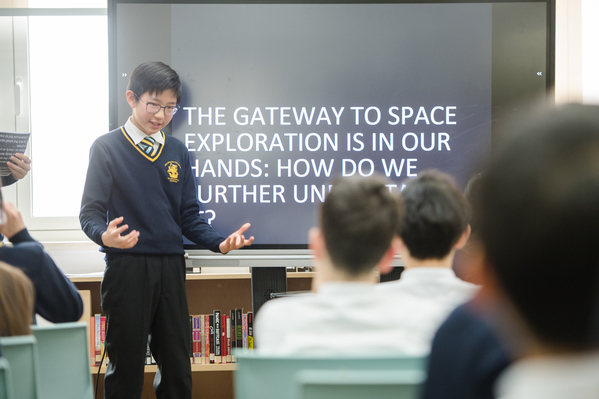 While the internet is opening doors to all manner of new knowledge and experiences, we must be careful to ensure that it doesn’t close them off too.
While the internet is opening doors to all manner of new knowledge and experiences, we must be careful to ensure that it doesn’t close them off too.
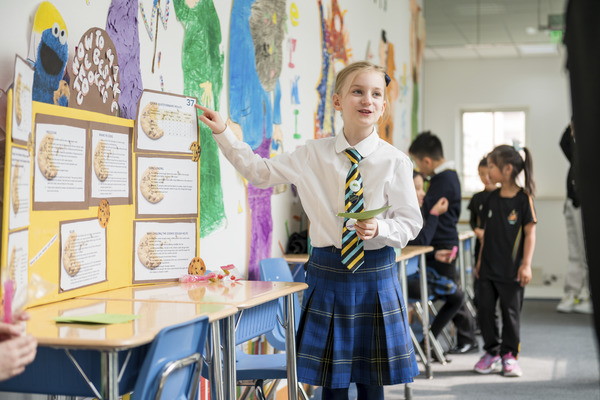
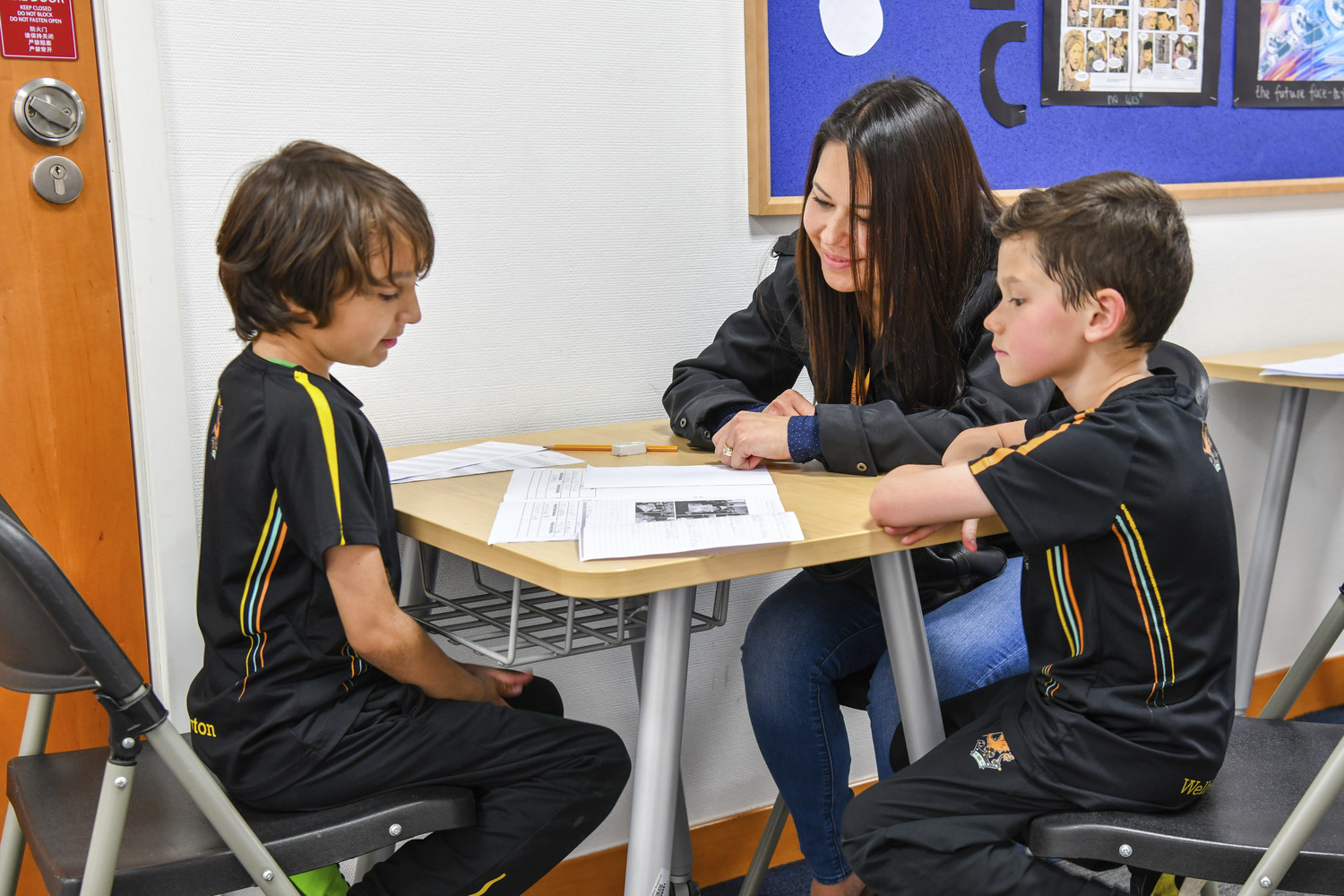 All classrooms have discussion guidelines displayed on the walls and various aids are used at the tables to reinforce awareness of conversational roles, with prompts for conversation starters, sentence stems to help pupils probe, question, clarify and engage in their conversations.
All classrooms have discussion guidelines displayed on the walls and various aids are used at the tables to reinforce awareness of conversational roles, with prompts for conversation starters, sentence stems to help pupils probe, question, clarify and engage in their conversations.
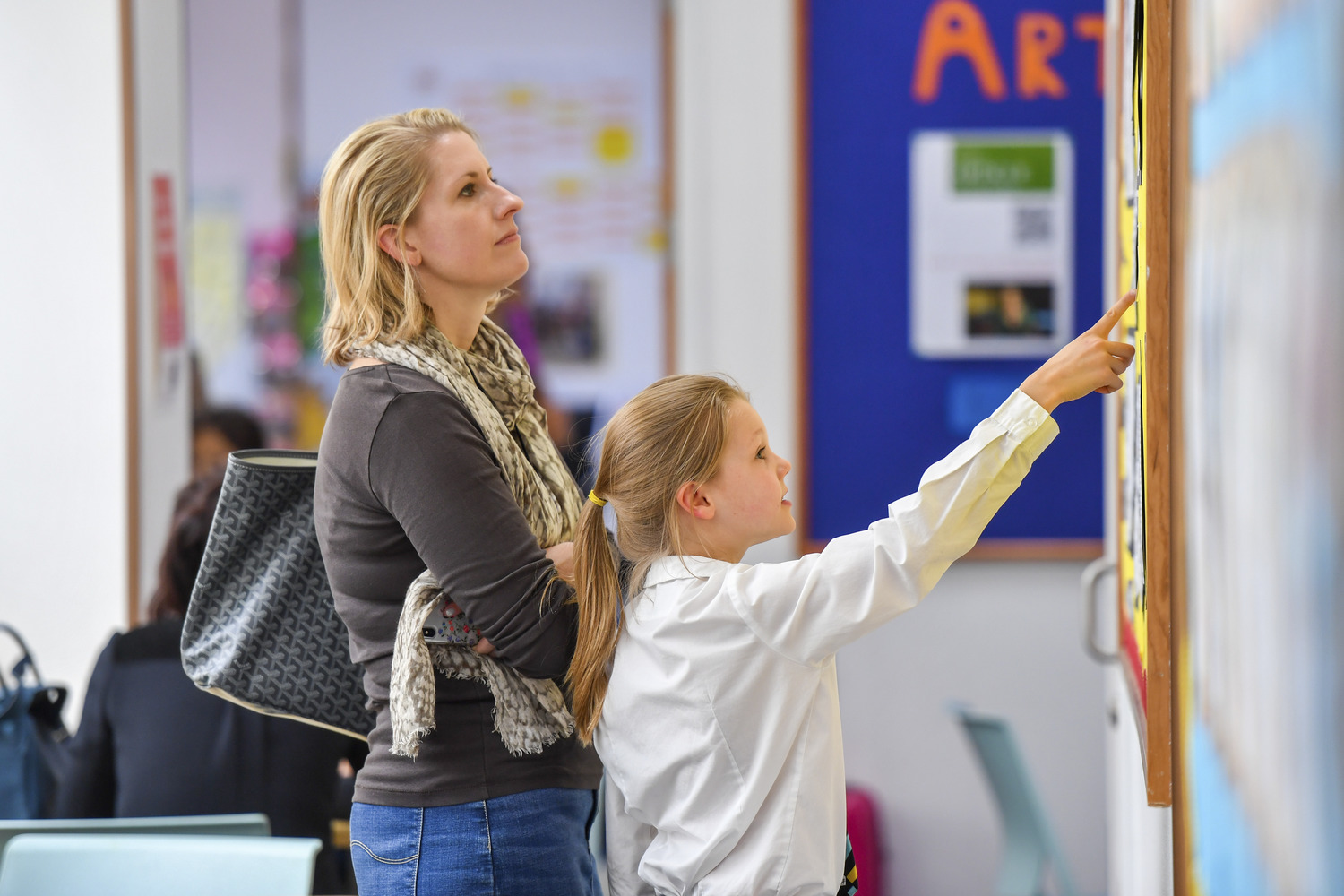 Moving beyond these broader elements, we then teach pupils how to speak with a clear voice while using a widening vocabulary and making their points in an engaging and interesting way. Alongside oracy activities in daily lessons, Prep pupils are also working towards a growing number of significant oracy-based projects each year. These projects are designed to put everything they have learned about verbal communication into practice, hopefully in a challenging yet fun way. To give a few illustrative examples, the current year 3s will be delivering a performance poem for their end-of-year oracy project, while the year 4s will give a radio announcement and the year 5s will have to make a sales pitch for a product of their choice.
Moving beyond these broader elements, we then teach pupils how to speak with a clear voice while using a widening vocabulary and making their points in an engaging and interesting way. Alongside oracy activities in daily lessons, Prep pupils are also working towards a growing number of significant oracy-based projects each year. These projects are designed to put everything they have learned about verbal communication into practice, hopefully in a challenging yet fun way. To give a few illustrative examples, the current year 3s will be delivering a performance poem for their end-of-year oracy project, while the year 4s will give a radio announcement and the year 5s will have to make a sales pitch for a product of their choice.
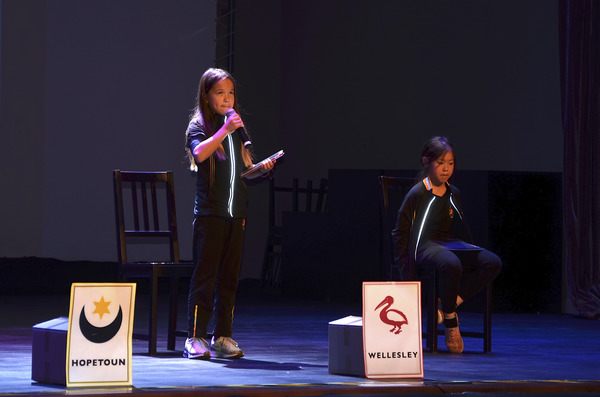 While we’re still tweaking this series of progressively challenging yearly projects, the final outcome of this process will be at the end of year 8, which signals the end of their time in the Prep School. Each year 8 pupil will perform an 8-minute Ignite speech (similar to TED Talks) on the College theatre stage, based on a topic of their choice. This will be the moment that culminates their oracy lessons as well as their ‘learning to learn’ (meta-cognition) lessons, where they are learning how to put a speech together effectively, how to choose and research a topic, how to outline their argument or points of address, and how to deliver their polished speech in a way that will make their audience take notice and absorb their message.
Our hope is that after experiencing this combination of daily oracy activities, which build up to the ‘big moment’ projects, our pupils will quickly expand their verbal communication toolkit. This way, they will continually hone their ability to express themselves with confidence and authority, unlocking new social and interpersonal talents along the way.
While we’re still tweaking this series of progressively challenging yearly projects, the final outcome of this process will be at the end of year 8, which signals the end of their time in the Prep School. Each year 8 pupil will perform an 8-minute Ignite speech (similar to TED Talks) on the College theatre stage, based on a topic of their choice. This will be the moment that culminates their oracy lessons as well as their ‘learning to learn’ (meta-cognition) lessons, where they are learning how to put a speech together effectively, how to choose and research a topic, how to outline their argument or points of address, and how to deliver their polished speech in a way that will make their audience take notice and absorb their message.
Our hope is that after experiencing this combination of daily oracy activities, which build up to the ‘big moment’ projects, our pupils will quickly expand their verbal communication toolkit. This way, they will continually hone their ability to express themselves with confidence and authority, unlocking new social and interpersonal talents along the way.
相关资讯

What is iGEM and our project, Barnacure?2025-10-09
iGEM Competition & Barnacure Team Members Team Illustration by Joanna, Year 11Article written Jing Jing, Year 11Primary Principal Investigator: Thomas Edwards, Head of Biology & Head of Science What
点击阅读

上海惠灵顿携手Oogie Art,助力艺术学子圆梦名校2025-11-04
上周,我校成功举办“走向名校:视觉艺术梦想之路”活动,并正式宣布上海惠灵顿与Oogie Art达成全新合作。今后,计划在大学攻读视觉艺术专业的惠灵顿学生,将有机会获得来自全球顶尖作品集指导机构Oogie Art的专业建议。 惠灵顿艺术总监Michael Larsen-Disney表示:“惠灵顿拥有从幼儿园到IB文凭阶段完整的视觉艺术课程体系,自一年级起就有专业艺术教师全程授课。通过艺术部门的努力
点击阅读

多彩校园,卓越之路:惠灵顿奖学金获得者Melody的故事2025-03-07
音乐成为Melody一生的挚爱,这并不令人意外。早在四岁时,她就被父亲——一位技艺精湛的制琴师——手工制作小提琴的过程深深吸引。在与钢琴老师合奏小提琴的经历中,她逐渐领悟到五线谱上的每一个音符都蕴含着独特的个性。 这段视频讲述了一个关于坚持、奉献和追求卓越的故事。让我们一起聆听Melody的分享,探究为何每个声音都如此重要且独一无二。 对话Melody——惠灵顿艺术类奖学金获得者(音乐)“每一个
点击阅读








